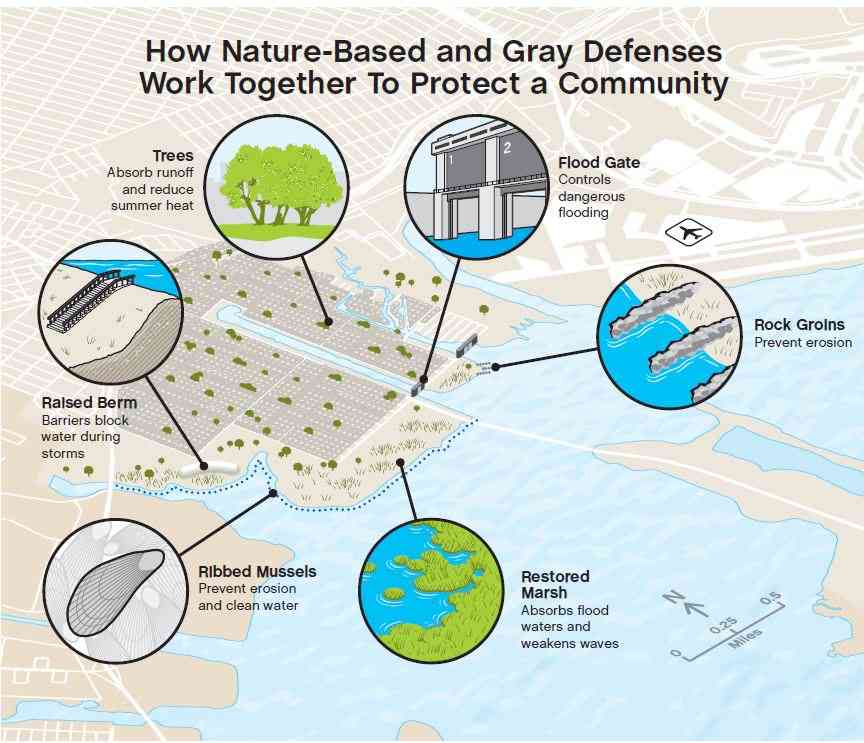
Climate Change is not a recent phenomenon, its effects are becoming increasingly noticeable.
This is due in part to human actions like rapid city growth, people moving due to disasters, and population strain. Poverty also plays a role, as people are sometimes forced to harm their environment to survive, limiting future resource use. Importantly, climate change is not the only reason people move; environmental damage caused by humans is another big factor. On a global scale, rising temperatures are harming ecosystems, food supplies, people's ability to make a living, health, and water, just to name a few.
Zimbabwe, which heavily relies on rain-fed agriculture, has an extremely variable and predominantly semi-arid climate.
The shifting rainfall patterns have led to extreme droughts and floods, exacerbated by substantial environmental challenges that include land degradation, deforestation, and inadequate water quantity and quality which have negatively impacted agriculture and food security.
Further, it has been noted that women and girls, along with other vulnerable groups such as persons with disabilities (PWDs) are disproportionately affected by such threats.
The increase in frequency and intensity of disaster events in all regions of the African continent, including Zimbabwe is a growing challenge, leaving in their wake the destruction of property, loss of lives and livelihoods, and food insecurity.
Consequently, climate change has of late been receiving significant attention with the need for adaptive actions high in national, regional, and global agendas. Zimbabwe has been experiencing increases in the frequency and severity of droughts over the years, compromising the livelihoods of vulnerable communities with a regressive effect on sustainable development.
Although it is widely acknowledged that one of the key outcomes following environmental stressors is migration, there is a significant knowledge gap in terms of understanding the migration, environment, and climate change nexus vis-à-vis data, responsive policies, and strategies to address the plight of environmental migrants.
- COP26 a washout? Don’t lose hope – here’s why
- Out & about: Bright sheds light on Vic Falls Carnival
- COP26 a washout? Don’t lose hope – here’s why
- Out & about: Bright sheds light on Vic Falls Carnival
Keep Reading
Yet, there is limited understanding of how climate change and the environment influence individual and household decisions to migrate work or livelihood opportunities for survival, let alone manage the mobility dimensions driven by climate change and disasters.
For instance, data that clearly distinguishes migration due to environmental factors from migration due to non-environmental factors i.e., political, socio-cultural, or economic is grossly lacking, suggesting a limited understanding of how climate change and environmental degradation drive migration and mobility, especially in drought and disaster-prone high migrant-sending communities.
In the face of the climate crisis, it has become imperative to acknowledge the nexus of these elements and pave the way forward by being proactively deliberate in policies, strategies, and interventions to address these challenges. In this vein, it is important to unpack ways of streamlining migration, environment, and climate change to policy frameworks and operational planning at country level.
Some the ways include but are not limited to:
Data, research and information
Considering the limited available information on the subject, particularly in Zimbabwe, and the lack of homogenized data across Southern Africa, it is essential to increase research efforts, as well as to further expand and disseminate the available data and information base on the impacts of migration, environment and climate change.
Furthermore, there is need to over time develop the required capacity to monitor actions implemented in response to migration, environment and climate change-related impacts and to share national experiences with the rest of the region.
At a country level, Zimbabwe can:
Develop a contextualized gender-sensitive Migration, Environment, and Climate Change toolkit and a set of recommendations for the Government of Zimbabwe to mainstream migration and human mobility into climate change, environment, and sectoral policies, disaster-reduction plans, strategies, and frameworks.
Encourage national universities and research institutes to integrate migration, environment and climate change into their topics of research. This could take the form of setting up independent country-based observatories on migration, environment, and climate change with the purpose of systematically and regularly collecting, analyzing and disseminating data and information relevant to national policy makers and practitioners.
Policy frameworks
The policy frameworks currently in place in Zimbabwe are proving to be insufficient to address the breadth of migration, environment and climate change and its impacts at national level.
In this regard, there is need to adopt a proactive approach and to build on existing relevant policy frameworks — develop a sound policy framework on migration, environment, and climate change.
At county level, Zimbabwe can:
Develop a national evidence-based legislative and institutional framework promoting pro-active consideration of migration, environment and climate change issues. This could include building on and reviewing, as may be necessary, existing policy frameworks such as those related to migration management policies, environmental policies, and development-guiding frameworks.
These frameworks should consider and address the needs of all groups of populations vulnerable to migration, environment and climate change issues, including women and the youth, displaced persons and host communities.
Coordination platforms
Considering the complex, dynamic, evolving and localized challenges on the causes, effects and impacts of migration, environment and climate change issues in Zimbabwe, it is essential to strengthen the capacities of all stakeholders of migration, environment and climate change on the understanding and treatment of the topic, according to their area of competence and responsibilities, and to promote coordination and cross fertilization of these capacities at country level.
At the country level, Zimbabwe can:
Establish inclusive national migration, environment and climate change stakeholder coordination platforms to pro-actively take on the area of migration, environment and climate change. This could include, as may be opportune, the use of existing coordination platforms such as those related to migration management, disaster management, environmental affairs, and development coordination groups.
To mainstream migration, environment and climate change issues in broader existing policies and into the scope of governments, especially at the district level.
Implementation
Given the challenges linked to limited available information, the absence of appropriate frameworks and the challenges of coordination for this multi-sectoral area, the implementation of operational initiatives to address migration, environment and climate change-related challenges and take hold of migration, environment and climate change-related opportunities remains complex.
Building capacity for an operational response to migration, environment and climate change issues is considered as essential to reduce unchosen migration in relation to environmental changes and climate change as well as to demonstrate the value of well-managed migration as an adaptation strategy.
At country level, Zimbabwe can:
Develop clear, realistic, and comprehensive national operational response plans to identified migration, environment and climate change challenges and opportunities.
Ensure results-based sustainable technical and financial support for those operational response plans, and map partners that can provide this support.
In conclusion, climate movements are unplanned and thus cause socio-economic challenges which calls for climate-proofing sectors to withstand and cope with the impact of climate change.
Significantly, it is imperative to address solutions through policies and strategies that address the climate change–human mobility nexus in Zimbabwe.
- Zvendiya is an independent economic analyst. — rzvendiya @gmail.com. These weekly New Perspectives articles, published in the Zimbabwe Independent, are coordinated by Lovemore Kadenge, an independent consultant, managing consultant of Zawale Consultants (Pvt) Ltd, past president of the Zimbabwe Economics Society and past president of the Chartered Governance & Accountancy Institute in Zimbabwe (CGI Zimbabwe). — kadenge.zes@gmail.com or mobile: +263 772 382 852.






